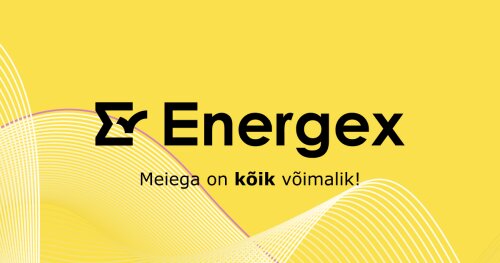Best Water Law Lawyers in Tallinn
Share your needs with us, get contacted by law firms.
Free. Takes 2 min.
List of the best lawyers in Tallinn, Estonia
About Water Law in Tallinn, Estonia
Water law in Tallinn, Estonia, refers to the set of legal rules and regulations governing the use, protection, and management of water resources. This includes surface water such as rivers, lakes, and streams as well as groundwater sources within and around Tallinn. Water law plays a crucial role in ensuring the sustainable use of water, safeguarding water quality, and preventing disputes over water use between individuals, communities, businesses, and government entities. Tallinners and businesses must comply with both national Estonian legislation and municipal regulations specific to the city.
Why You May Need a Lawyer
Hiring a water law lawyer in Tallinn can be vital in various situations, including:
- Resolving disputes over water use or access to water bodies
- Assisting with obtaining permits for water use or construction near water bodies
- Representing you in cases of water pollution or alleged environmental violations
- Guiding businesses through compliance with water regulations for industrial or agricultural activities
- Advising homeowners and property developers on flood risk management
- Defending against claims of illegal water extraction or contamination
- Helping stakeholders understand legislative changes impacting water rights or responsibilities
Without specialized knowledge in water law, navigating permits, compliance issues, and conflict resolution can be complex and costly, making legal assistance crucial for both individuals and organizations.
Local Laws Overview
Water law in Tallinn is based on both national Estonian water legislation and local regulations. Some of the key legislative acts and principles include:
- The Estonian Water Act (Veeseadus) is the primary law regulating the use, management, and protection of water resources. It lays down requirements for water permits, water quality standards, and sustainable use.
- Estonian Environmental Protection Act also sets out responsibilities regarding the prevention and management of water pollution, monitoring, and conservation efforts.
- Local Tallinn environmental regulations may set additional restrictions on construction near water bodies, maintenance of public and private waterfront areas, and stormwater management.
- Property owners adjacent to lakes, rivers, or the sea must follow specific buffer zone requirements and may not freely alter the natural state of the shoreline.
- Strict rules exist for waste water discharge into natural streams or lakes, requiring businesses and households to connect to the municipal sewage system where available, or obtain permits for alternatives.
Water rights in Estonia are considered public property, with private use subject to regulations and permitting. Enforcement is managed by state agencies and local municipalities.
Frequently Asked Questions
What permits do I need to use surface water for business in Tallinn?
You generally need a water use permit issued by the Estonian Environmental Board. The type of permit depends on the purpose and quantity of water used.
Can I build a dock or pier on public water bodies in Tallinn?
You must obtain approval and necessary permits from the relevant municipal authorities and possibly the Environmental Board. Unauthorized construction is prohibited.
Who is responsible for stormwater drainage around my property?
Property owners are responsible for managing stormwater on their land and connecting to the municipal drainage system if available. Local bylaws set detailed requirements.
How is water quality monitored in Tallinn?
The municipal water utility and the Estonian Environmental Board conduct regular monitoring. Specific standards are set by national law for drinking water, bathing water, and wastewater.
Do I need permission to drill a well on my property?
Yes, a permit is required for drilling a groundwater well. The application must be made through local authorities and meet strict environmental standards.
What can I do if my neighbor is polluting a shared water body?
You can file a complaint with the local environmental authorities or the Environmental Inspectorate, who will investigate and take enforcement action if necessary.
Are there rules for using pesticides and fertilizers near water in Tallinn?
Yes, national and local regulations prohibit or strictly limit the use of chemicals in buffer zones adjacent to water bodies to protect water quality.
How are flood risks managed in Tallinn?
The city has detailed flood management plans, and new developments may require specific measures to mitigate flood risks. Your project may be subject to additional reviews if located near flood-prone areas.
Can a water permit be transferred from one person or company to another?
Water permits are typically non-transferable, but in some cases, a new permit application can reference the prior authorization. Legal advice is recommended when ownership changes.
What are the penalties for violating water law regulations in Tallinn?
Penalties can include fines, orders to remedy damage, and, in severe cases, criminal liability. The measures depend on the nature and extent of the violation.
Additional Resources
For more information or to seek help regarding water law in Tallinn, consider contacting the following:
- Estonian Environmental Board (Keskkonnaamet) for water permits and compliance guidance
- Estonian Environmental Inspectorate for reporting violations and seeking enforcement
- Tallinn City Government Department of Environment and Public Utilities for local regulations and support
- Legal Aid offices and the Estonian Bar Association for finding a specialist in water law
- Municipal water utilities for questions on connections, water quality, and drainage
Additionally, academic institutions and non-governmental organizations may offer information and advice on water protection and rights in Estonia.
Next Steps
If you believe you need legal assistance with a water law issue in Tallinn, follow these steps:
- Identify the specific water-related matter or dispute you are facing
- Gather relevant documents, such as permits, plans, correspondence, and photographs
- Contact a licensed lawyer who specializes in environmental or water law in Tallinn
- Schedule a consultation to discuss your case and understand your legal options
- Follow the advice provided, which may include applying for permits, filing complaints, or negotiating solutions
- Reach out to the appropriate governmental bodies or support services as needed
Taking timely legal advice can help prevent costly mistakes, ensure compliance with complex regulations, and protect your rights and interests when dealing with water law matters in Tallinn, Estonia.
Lawzana helps you find the best lawyers and law firms in Tallinn through a curated and pre-screened list of qualified legal professionals. Our platform offers rankings and detailed profiles of attorneys and law firms, allowing you to compare based on practice areas, including Water Law, experience, and client feedback.
Each profile includes a description of the firm's areas of practice, client reviews, team members and partners, year of establishment, spoken languages, office locations, contact information, social media presence, and any published articles or resources. Most firms on our platform speak English and are experienced in both local and international legal matters.
Get a quote from top-rated law firms in Tallinn, Estonia — quickly, securely, and without unnecessary hassle.
Disclaimer:
The information provided on this page is for general informational purposes only and does not constitute legal advice. While we strive to ensure the accuracy and relevance of the content, legal information may change over time, and interpretations of the law can vary. You should always consult with a qualified legal professional for advice specific to your situation.
We disclaim all liability for actions taken or not taken based on the content of this page. If you believe any information is incorrect or outdated, please contact us, and we will review and update it where appropriate.

















